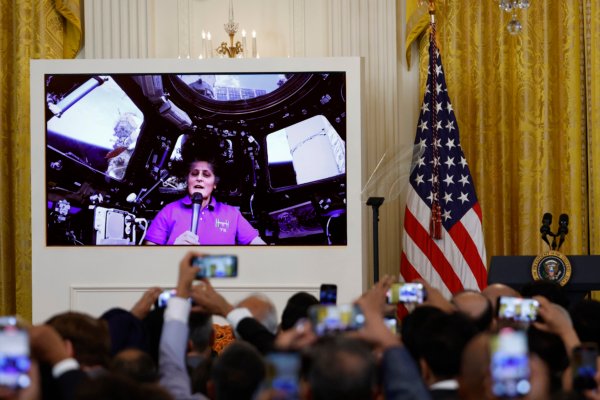A recent study has found that prolonged exposure to enclosed or isolated environments can lead to changes in astronauts’ and solitary individuals’ sense of smell and emotions towards food. Scientists are hoping to discover methods to improve the food experience for astronauts and solo dwellers.
Many astronauts have reported that the food they consume in space during missions tastes significantly different from that on Earth, making it challenging to maintain a normal intake of nutrients over extended space missions. These challenges have left scientists and astronauts grappling for solutions.
On June 5th this year, NASA astronauts, 59-year-old Sunita Williams and 61-year-old Barry Wilmore, embarked on the Boeing Company’s Starliner spacecraft to the International Space Station. Due to a mechanical malfunction, they were unable to return safely to Earth and were forced to stay on the International Space Station until February 2025 for their return. In early November, a recent photo of Williams surfaced showing a sharp decrease in weight and sunken cheeks, sparking concerns from the public. Some scientists explained that this was a result of her inability to keep up with the high-calorie diet required for astronauts on a daily basis.
A research team at RMIT University in Australia conducted a study revealing that people’s sense of smell can be influenced by the environment, stress, and emotions, with these olfactory changes affecting people’s eating habits. The findings of this study were officially published on November 19th in the International Food Research journal.
Researchers enlisted 44 participants, including 23 males and 21 females aged between 19 and 28. They were placed in two different environments to smell and perceive the aromas of 8 different foods.
In the first environment, participants mimicked the “microgravity” posture of astronauts by sitting on reclining chairs. The second environment involved participants wearing virtual reality (VR) headsets displaying simulated closed environments resembling the International Space Station, while also undergoing basic space mission training.
Subsequently, participants were asked to smell vanilla essence, almond extract, lemongrass essential oil, lemon peach wood essential oil, eucalyptus essential oil, peppermint extract, white vinegar, and lemongrass essential oil. The results showed that most participants wearing VR headsets perceived stronger scents of the aromas, except for lemongrass essential oil.
The study also discovered that emotions significantly influence the sense of smell. In the VR environment, participants with positive emotions tended to perceive stronger aromas, such as almonds and vinegar becoming more pronounced. However, when subjected to slight stress, they were less likely to detect the original scent of vinegar.
This experiment provides further insight into the impact of emotions and stress on the sense of smell. It also explains why astronauts can consume certain foods in microgravity that they wouldn’t typically eat on Earth. Researchers suggest that these types of tests could potentially enhance space food systems in the future, including customizing long-term space dietary plans for astronauts, such as those embarking on journeys to Mars.
Dr. Grace Loke, the lead author of the paper and a researcher at RMIT University, expressed to the university’s newsroom that dining for humans on Earth often involves social aspects, but during extended space missions, the sensation of eating may be drastically different. While microgravity was previously thought to be the primary factor in altering food taste, the results of this study indicate that taste perception is related to enclosed and isolated environments, playing a crucial role.

